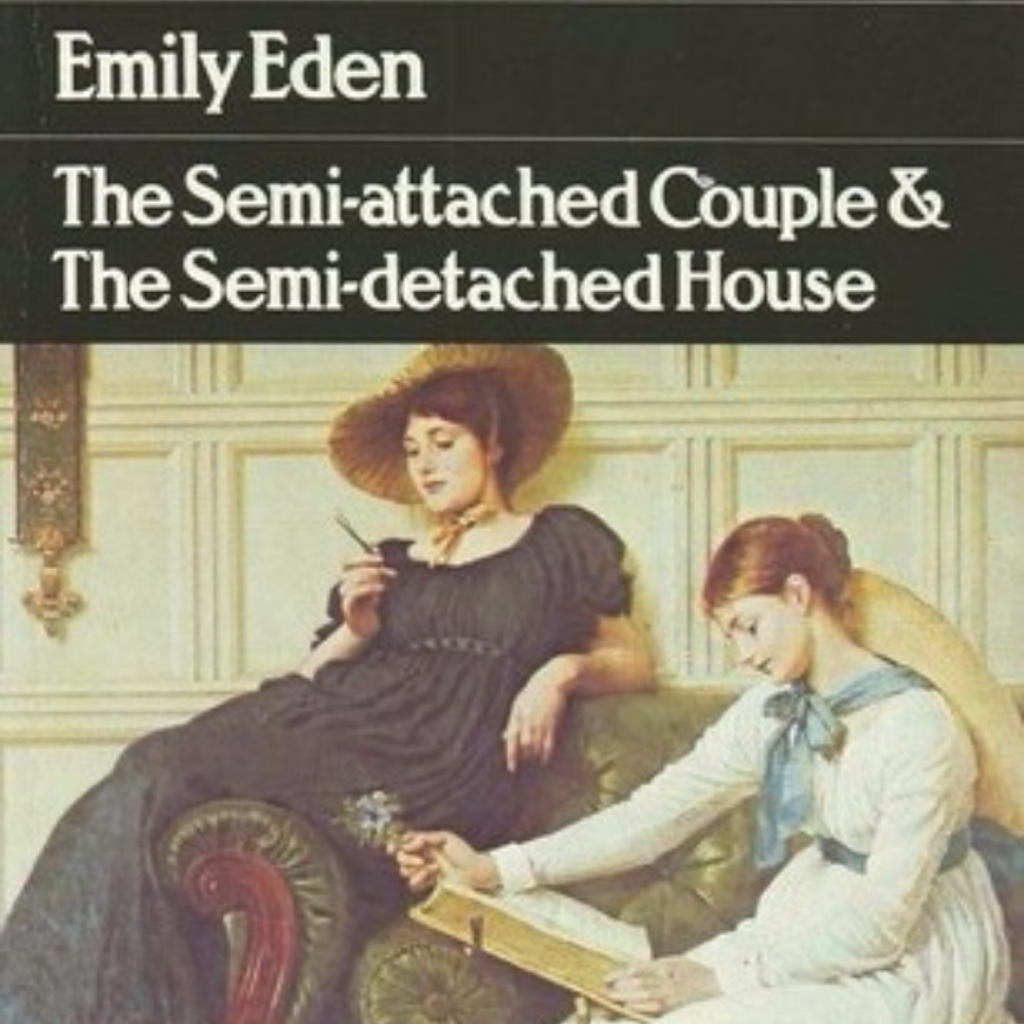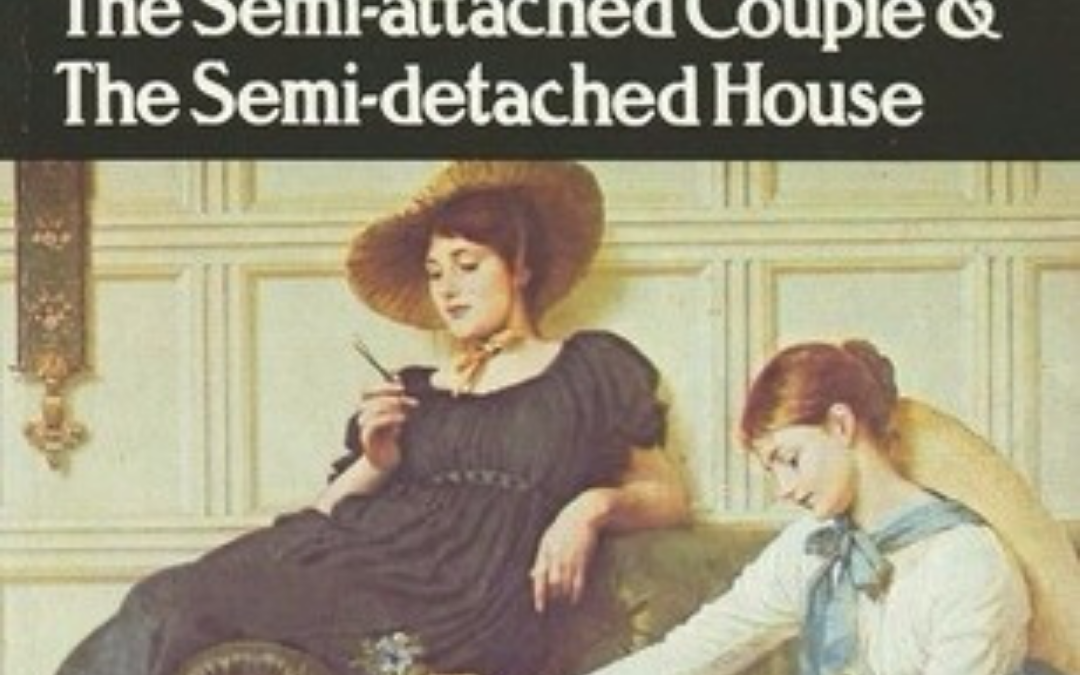A book review
What happens?
The Semi-Attached Couple is primarily the story of two neighbouring families; The wealthy Eskdales and the not so wealthy Douglas’.
18-year-old Helen Eskdale is engaged to Lord Teviot. Just before the wedding she has second thoughts because Lord Teviot shows himself to be very jealous of her relationship with her family, and he displays bursts of anger and moodiness. These are understandably worrying to Helen.
Helen’s sister, Amelia, is very happily married and wants the same for her sister. She dismisses Helen’s concerns and encourages her to go ahead with the wedding. After all, it’s been arranged.
The wedding goes ahead and Helen moves to Lord Teviot’s house, St Mary’s Abbey.
When Helen moves to her marital home, Lady Eskdale asks Eliza Douglas to come and stay with her for a few weeks because she is lonely now that both her daughters have flown the coop. What we would now call empty nest syndrome.
Helen and Lord Teviot invite a large party of friends and family to their home. It is during this extended visit that most of the action takes place. We see the unraveling of Helen and Lord Teviot’s marriage, we see old friends bicker, new friendships form and the romances begin to blossom.
One of the most irritating and entertaining characters is Lady Portmore. We get to know her intimately and as narcissistic as she may be, Emily Eden shows us just how insecure she really is with humour and sensitivity.
Towards the end of the novel, Lord Teviot is sent away to Portugal on government work. He and Helen argue just before he leaves and they both think that is the end of their short-lived marriage.
While he is away, Helen realises just how much she loves him and endeavours to be the best wife she can when he returns. Her wifely duties are put to the test when Lord Teviot falls dangerously ill and she is forced into the role of a nursemaid.
In true romance style, we have a happy ending.

Highlights
You will elsewhere find many references and comparisons to Jane Austen, so I won’t dwell on them here, only to say that it is clear Emily Eden was a huge admirer of Austen and certainly emulated her style with this novel. Eden doesn’t quite have Austen’s wit or turn of phrase, but she does delve further into the psyche of her characters and shows their darker side more than Austen did.
For example, I found Teviot’s behaviour during his arguments with Helen unacceptable and I would have been scared to marry him too if I were her. His temper and moods did show signs that he could turn violent at any moment, and I did wonder if the story was going to head in that direction.
Since finishing the book, I’ve read other people’s reviews and have been amazed at how funny people have found those scenes, so it perhaps says more about me!
Mrs Douglas is fabulously bitchy and mean about everybody, but it only goes to demonstrate her own feelings of inadequacy, especially when we’re told early on that:
‘Mrs. Douglas had never had the slightest pretensions to good looks; in fact, though it is wrong to say anything so ill-natured, she was excessively plain, always had been so, and had a soreness on the subject of beauty, that looked perhaps as like envy as any other quality.
As she had no hope of raising herself to the rank of a beauty, her only chance was bringing others down to her own level.’
When talking about Helen, Mrs Douglas describes her thus:
“I think her looking dreadfully old, Mr Douglas.”
“Old at eighteen, Anne! what [sic] wrinkled wretches we must be! Has Helen grown gray?”
Still in this vein, Mrs Douglas has one of my favourite lines the book:
“The Beauforts all laugh as if they thought they had good teeth” said Mrs Douglas.
That line made me a laugh out loud – I hope my teeth are good enough!
Lady Portmore is a wonderful character, tragic and unlikeable I still wanted a good outcome for her. She is vain beyond compare, gives herself the airs and graces of someone much richer and more influential than she is. She strikes me as someone who has been disappointed in life, and wishes she’d married someone like Mr G, the Prime Minister. That is the sort of role she feels she was born to play.
They joined the rest of the circle and found Lady Portmore proving to Lord Eskdale that she had brought about most of the political changes of the past year and that she knew beforehand all that were likely to take place in the ensuing one
The book is good fun and told tongue in cheek throughout. Emily Eden never married and I can’t help but think she is having a dig at how foolish the institution is. All the couples in the book meet and marry within the space of a few weeks, even Lord and Lady Eskdale.
Politics
There are a few chapters towards the end of the book during which Lord Eskdale and Mr Douglas stand for election, on opposite ends of the political spectrum. The election takes place over a few days and the votes each candidate receives at the end of each day are made public, upping the tension.
I had forgotten that at the time the book was written votes were declared publicly. The entire town, indeed the candidates themselves, were made privy to who made each and every vote. If you were the employee of someone standing for election you had no choice but to vote for them, regardless of your own political inclinations.
Is this book for you?
If you enjoy light-hearted, witty historical romances, you’ll love this. Not only does it fit well with Austen fans but I think Georgette Heyer fans as well.
If this review was helpful, you’ll enjoy these too:






